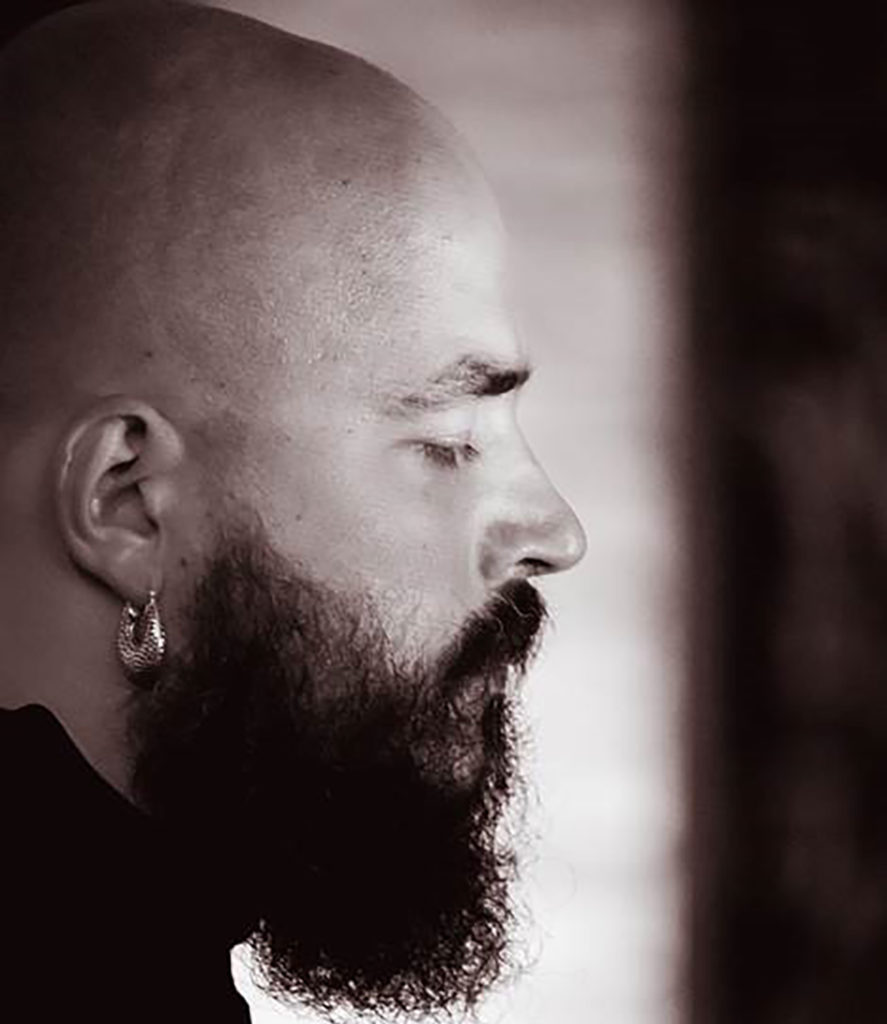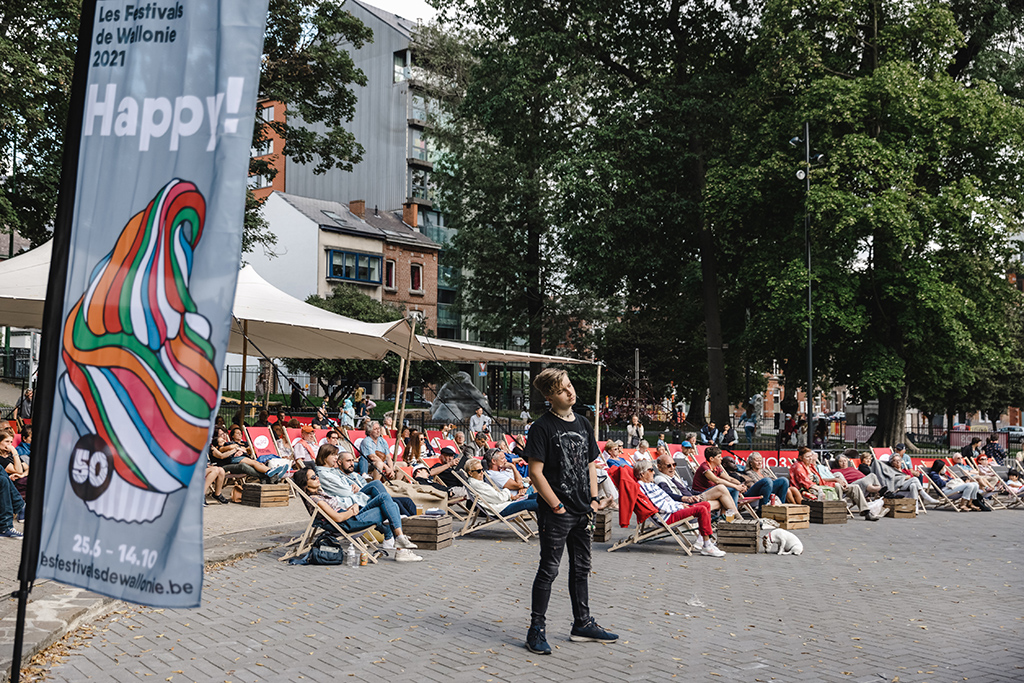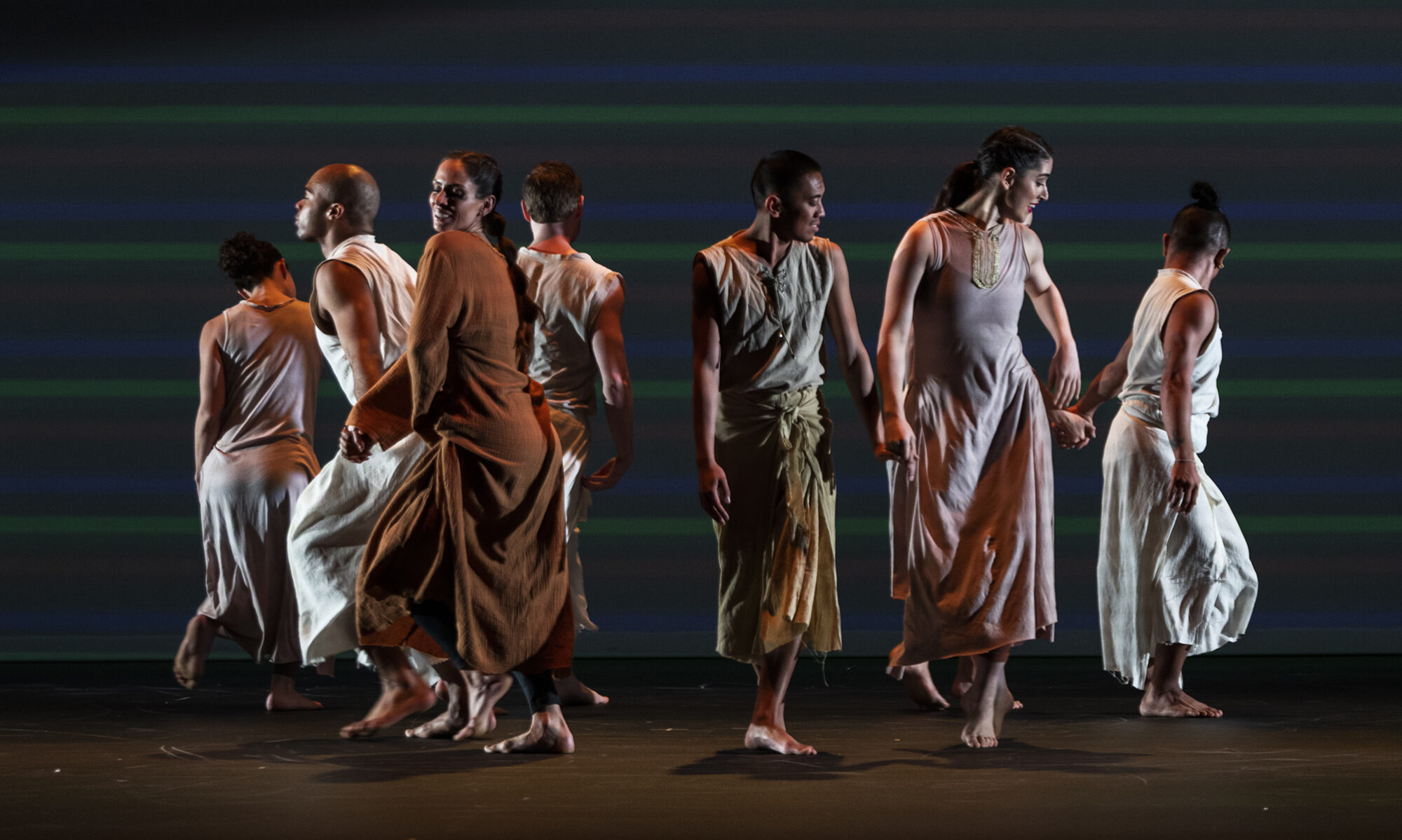Whispers from nowhere

Maxim Shalygin is a Ukrainian-Dutch composer (was born in Kamianske, formerly Dniprodzerzhynsk in 1985). In 2010 Shalygin has moved to the Netherlands, the place where he could successfully turn the bravest ideas into reality. During this time he managed to write more than 40 works in various genres: chamber, vocal, symphonic, electro-acoustic music, as well as music for theatre, ballet, and film. Shalygin’s compositions combine a wide range of techniques with psychological insight and spirituality. For many years, Shalygin has been occupied with music for solo instruments. “The most concealed, intimate, and deep things can only be expressed by a single instrument,” he says. In each of his solo works, Shalygin reaches an exalted state, giving the instrument a special voice.
XXX
With all taken away,
silent you stand,
having lost heart,
having lost heart.
Flashing your thoughts
are the faces and souls
of those stony, aloof
from your stance
having lost heart,
having lost heart.
Not an eyelid batting,
nor a bell.
And rooted to the spot
birds fixate you,
the way you stand
having lost heart,
having lost heart.
The scream of a child in that head of yours:
“Move, you’ll be flooded, get out of here now!”
But no eyelid bats, nor a bell tolls,
no birds, nor gold
in the reflection of a sun-struck dome,
of yours who have been taken,
of yours that’s more
than light, a low roar,
as if with ice one covers
a whole body with a blanket,
you don’t see with your eyes,
you stand in silence,
having lost heart,
having lost heart.
The Hague, 13 May 2019
what to talk about in times of war? can you go on writing words? can you play music? walk your dog? eat? paint pictures? enjoy sunsets?
from the first day of the russian invasion into ukraine I grew numb. thoughts began coming up in my head only after I ran out of tears. at such a time you cry not because you are upset, stupefied, or helpless, but just because the tears run out of you by themselves. however, they bring neither consolation nor reconciliation. slowly the shock transforms into some dull rage. a terrible pain transfixes you from inside and doesn’t leave you alone. nothing will ever be the same (ashes powder your eyes), and the life of every ukrainian now has a before-and-after. if it goes on at all.
I have often been asked before why my music is so full of extremely tragic elements. it goes without saying that this is a rhetoric question for someone who is used to looking just a bit beyond his private interests, well-being, laziness, and indifference. but what is it that pushes one to express tragedy by artistic means?
after the second world war we have developed a new type of musical expression. we understand that music is capable of expressing both eternal beauty and eternal terror. and we have really begun to realise that terror is indeed eternal. the fear and trembling of this realisation has been expressed in many works to date, reminding us at the level of our senses how close we continuously are to destroying our internal and external balance. still, many people feel repelled and prop up their ears instead of letting their souls pass through this pain and enabling their weakened spirits to reach a new level of understanding the structure of the universe.
but we are running ahead, because we have to come to our senses, wake up, and recognise — humbly or not — that we are hopelessly entangled in a world of endless consumption, in which murder is no longer something outrageous, in which mortified animals adorn our dishes from dusk till dawn every day and we devour them using fancy forks while watching the evening news show that covers the latest war again. we have completely lost the ability to feel. this is the trap into which humanity trips every now and then, thus ensuring the unshakeable eternity of all insanity that happens all the time.
now, what’s left to all of us, who live this side of the looking glass? probably, what’s left is the belief that the voice of art that we create becomes sufficiently powerful — without losing its transparency and refinement — to shake the accidental person, who may wake up from his or her drowsiness and fall to earth, then stand up a completely broken, but happy and free human being.
I believe that art is capable of pulling out some souls from their vicious circles and of helping the world regain a long-forgotten balance.
“While combing your hair”
dedicated to Maria Kalesnikava
Wake up from your dream and look up straight to the sea.
Would you be silent, if its color turned suddenly red?
And from the emerald sky hundreds of various animals will start to fall down.
Will you believe the rainbow’s still near,
when at night the seagulls start screaming above all flooded market places,
will you take the hairbrush and start combing your dazzlingly stunning white hair?
The sound of the broken mirrors will freeze in the air:
thousands of silent shards!
And you will see lonely boats in quiet lakes
with faces of fish:
praying, trembling and crying in primeval fear.
Let your hand shield your blue eyes
so darkness will be
like blood in a world out of golden salt.
Stay in silence,
and lift up your sorrowful,
exhausted face to the Sun.
Then flocks of birds will descend to every home,
people will hear them sing in their backyards.
And smiles will suddenly cover their frightened
yet trustful and beautiful souls.
The Hague, 2021
Translation to English by Paul van der Woerd
Festival Life creates shared moments of audiences and artists, eye-to-eye


